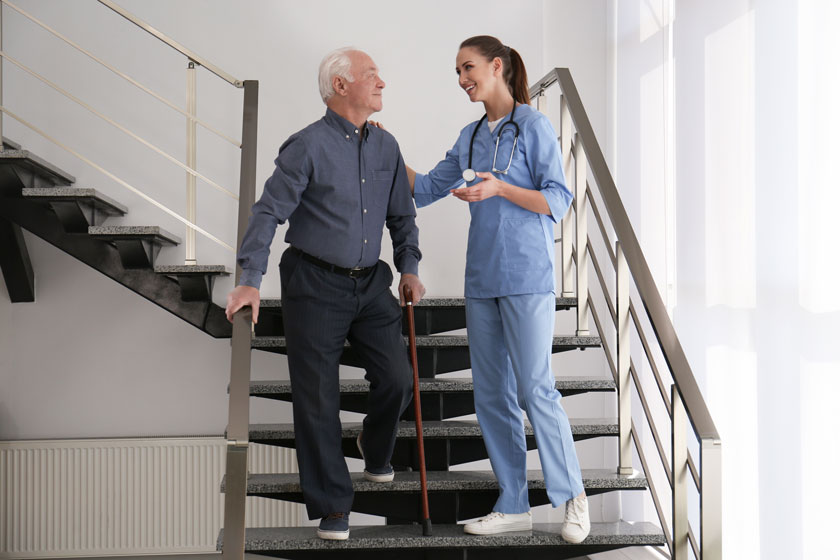As individuals age, maintaining safety becomes increasingly paramount for sustaining a high quality of life and independence. In McKinney, TX, assisted living facilities play a vital role in this endeavor, serving as crucial resources that foster safety skills. These facilities offer compassionate care and support, ensuring that seniors can continue to live their lives with dignity and comfort. Through personalized care plans, round-the-clock assistance, and a community-oriented environment, assisted living facilities in McKinney, TX, provide a secure and nurturing setting for seniors to thrive.
Understanding the Importance of Safety Skills
Safety skills encompass a broad spectrum of abilities and practices that are fundamental for seniors to navigate their daily lives with confidence and autonomy. These skills encompass everything from fall prevention and medication management to hazard recognition and emergency preparedness. As individuals age, their physical and cognitive abilities may change, necessitating the development and reinforcement of safety skills to adapt to these changes effectively. Assisted living facilities deeply understand the significance of these safety skills and integrate them into their comprehensive approach to resident care, recognizing that promoting safety enhances residents’ overall quality of life and reduces the risk of accidents or injuries.
Promoting Fall Prevention
Falls represent a significant risk to senior safety, often resulting in severe injuries and a loss of independence. Assisted living facilities prioritize fall prevention strategies to safeguard residents’ well-being and reduce the incidence of falls. These strategies encompass a multifaceted approach that goes beyond simple interventions to address the underlying risk factors contributing to falls. Environmental modifications play a crucial role in fall prevention, with facilities conducting thorough assessments of resident rooms and common areas to identify potential hazards and risks. Based on these assessments, safety features and modifications are implemented to mitigate risks and enhance safety. These may include installing grab bars, ensuring non-slip flooring, and providing adequate lighting in common areas and resident rooms. Additionally, residents benefit from tailored exercise programs designed to improve strength, balance, and flexibility, reducing their risk of falls. Caregivers also offer mobility assistance, ensuring that residents can move safely throughout the facility and participate in activities without fear of injury.
Encouraging Medication Management
Effective medication management is essential for seniors to maintain their health and well-being, especially as they age and may experience multiple chronic conditions requiring medication. Assisted living facilities play a pivotal role in supporting residents with their medication needs. Caregivers provide personalized assistance, including medication reminders, assistance with medication organization, and coordination of pharmacy services. Residents receive comprehensive education on their medications, including proper administration techniques, potential side effects, and interactions. Regular medication reviews are conducted to ensure that residents’ medication regimens remain appropriate and effective. By promoting safe medication practices, assisted living facilities help residents avoid medication errors and complications, thereby enhancing their overall safety and well-being.
Enhancing Home Safety
Creating a safe living environment is essential for promoting the well-being of seniors, particularly as they may spend a significant amount of time within their residences. Assisted living facilities prioritize home safety through comprehensive assessments and modifications tailored to each resident’s needs and preferences. Caregivers conduct thorough safety assessments of resident rooms and common areas to identify potential hazards and risks. Based on these assessments, safety features and modifications are implemented to mitigate risks and enhance safety. These may include installing handrails, wheelchair ramps, and emergency call systems, as well as ensuring that flooring is non-slip and that lighting is adequate. Caregivers also provide ongoing education on fire safety, emergency preparedness, and the proper use of assistive devices, empowering residents to maintain a secure living environment independently.
Facilitating Cognitive Stimulation
Preserving cognitive function is crucial for seniors to maintain mental acuity and independence, yet cognitive decline can pose significant challenges to safety. Assisted living facilities recognize the importance of cognitive stimulation and offer a wide range of engaging activities and programs designed to promote cognitive function. These activities may include cognitive games, puzzles, art therapy, and reminiscence therapy, all tailored to residents’ interests and abilities. Group activities and social interactions are also encouraged, as social engagement has been shown to have cognitive benefits. By providing opportunities for cognitive stimulation, assisted living facilities support residents’ overall well-being and safety, reducing the risk of cognitive decline and enhancing their quality of life.
We understand the critical role that safety skills play in promoting the well-being and independence of our senior residents. Our dedicated team is committed to providing personalized care and support, incorporating evidence-based practices and innovative approaches to promote safety and security. From comprehensive fall prevention initiatives and medication management assistance to home safety assessments and cognitive stimulation programs, we strive to empower residents to lead fulfilling and secure lives. Contact us today to learn more about how we can support you or your loved one in achieving peace of mind and security in McKinney, TX.






